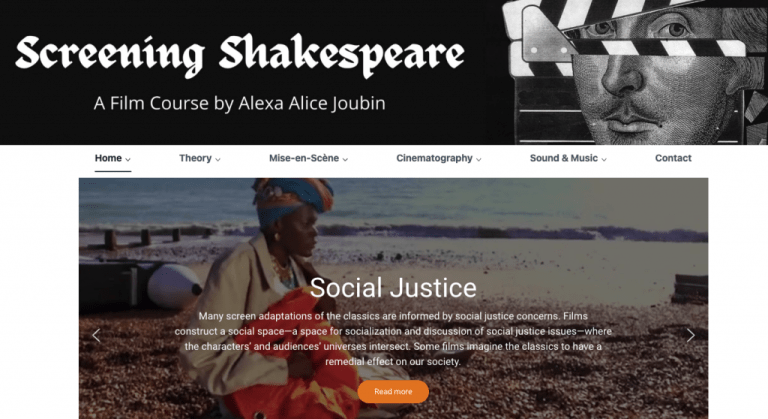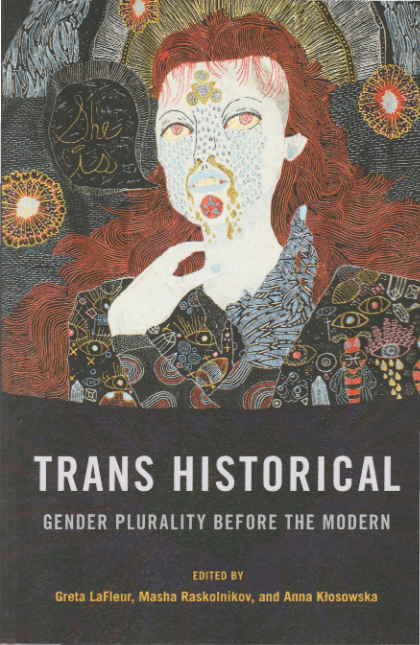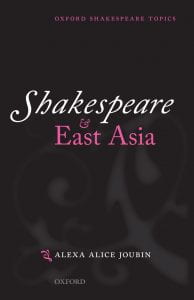 When AI goes to theater with humans, it changes the dynamics of the social space. This article examines a case of audiences using an AI app on their phones to translate a sign language performance. Whom does the screen interface serve, and how do artificial intelligence tools affect theatrical publics across both the playing space and the playgoing space? Screens are a site where cultural and performative meanings are generated and negotiated.
When AI goes to theater with humans, it changes the dynamics of the social space. This article examines a case of audiences using an AI app on their phones to translate a sign language performance. Whom does the screen interface serve, and how do artificial intelligence tools affect theatrical publics across both the playing space and the playgoing space? Screens are a site where cultural and performative meanings are generated and negotiated.
Open-Access Textbook: Screening Shakespeare
We are pleased to announce the publication of MIT Global Shakespeares co-founder Alexa Alice Joubin’s Screening Shakespeare, a new, open-access, online textbook with interactive learning modules. You can learn about key concepts of film and adaptation studies. The openly-licensed book is free to all. You can learn about film theory, mise-en-scène, cinematography, sound and music, and adaptation strategies in the context of global Shakespeare.

...continue reading "Open-Access Textbook: Screening Shakespeare"
Transgender Shakespeare and Why It Matters
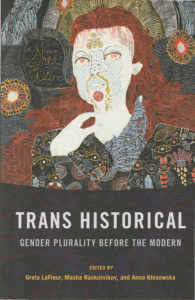 Many characters in Shakespeare's plays lend themselves to be interpreted as transgender. Even though Shakespeare’s plays were initially performed by all-male casts, they were designed to appeal to diverse audiences. Shakespeare’s plays, as readily available reference points, have been reimagined in performances that explore new gender roles. In particular, transgender performances tend to be billed, or perceived, as art with a cause, as a socially reparative act leading to the amelioration of personal and social circumstances. Reparative trans performances—works in which characters see their condition improve—carry substantial affective rewards by offering optimism and emotional gratification. The call for social justice may seem universal, but the exact elements requiring reparation are malleable. The reparative arcs diverge dramatically between different works. ...continue reading "Transgender Shakespeare and Why It Matters"
Many characters in Shakespeare's plays lend themselves to be interpreted as transgender. Even though Shakespeare’s plays were initially performed by all-male casts, they were designed to appeal to diverse audiences. Shakespeare’s plays, as readily available reference points, have been reimagined in performances that explore new gender roles. In particular, transgender performances tend to be billed, or perceived, as art with a cause, as a socially reparative act leading to the amelioration of personal and social circumstances. Reparative trans performances—works in which characters see their condition improve—carry substantial affective rewards by offering optimism and emotional gratification. The call for social justice may seem universal, but the exact elements requiring reparation are malleable. The reparative arcs diverge dramatically between different works. ...continue reading "Transgender Shakespeare and Why It Matters"
When Films Allude to Shakespeare …
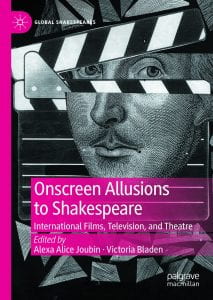 Shakespeare’s plays and motifs have been cited and appropriated on screen since motion pictures were invented in 1893. Allusions to Shakespeare haunt our contemporary culture in a myriad of ways, whether through brief references or sustained intertextual engagements. ...continue reading "When Films Allude to Shakespeare …"
Shakespeare’s plays and motifs have been cited and appropriated on screen since motion pictures were invented in 1893. Allusions to Shakespeare haunt our contemporary culture in a myriad of ways, whether through brief references or sustained intertextual engagements. ...continue reading "When Films Allude to Shakespeare …"
The Value of Global Shakespeare
Shakespeare and East Asia (2021) explores distinctive themes in post-1950s Asian-themed performances and adaptations of Shakespeare. In this Snapshot, former Fulbright Scholar Alexa Alice Joubin discusses the book and the importance of wider research into Global Shakespeares. ...continue reading "The Value of Global Shakespeare"
Five themes in Asian Shakespeare adaptations
Since the nineteenth century, stage and film directors have mounted hundreds of adaptations of Shakespeare drawn on East Asian motifs, and by the late twentieth century, Shakespeare had become one of the most frequently performed playwrights in East Asia. There are five striking themes surrounding cultural, racial, and gender dynamics. Gender roles in the play take on new meanings in translation, and familiar and unfamiliar accents expanded the characters’ racial identities.

In her new book, Shakespeare and East Asia, Alexa Alice Joubin explores five fascinating aspects about Asian adaptations of Shakespeare’s plays.
...continue reading "Five themes in Asian Shakespeare adaptations"
Familiar Ambiguity: The Value of the Humanities in a Globalized World

An op-ed by Alexa Alice Joubin, originally published in Signal House.
Great stories are often strangers at home. The best of them defamiliarize banal experiences and everyday utterances while offering something recognizable through a new language and form.
...continue reading "Familiar Ambiguity: The Value of the Humanities in a Globalized World"
Soviet Shakespeares
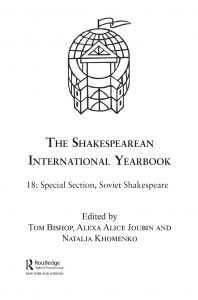
Due to Karl Marx’s frequent references in his political treatises, Shakespeare held a significant place in a number of communist and other left-authoritarian countries, including China and the USSR. And although there were themes in Shakespeare that turned out to be inconvenient for communist ideology, other Shakespearean plays were put into service. In Part I of this volume of the Yearbook, the special section of chapters explores the vicissitudes of artistic and political uses of Shakespeare in Soviet culture and ideology after the October Revolution in 1917, including in some of the continuing resonances of those uses since the collapse of the Soviet Union. And while the real and perceived resistance to prevailing ideologies of Soviet directors has tended to capture recent critical attention, there is a wide range of Soviet and post-Soviet interpretations of Shakespeare. ...continue reading "Soviet Shakespeares"
How Shakespeare Cures a Stuttering King
 The King's Speech (dir. Tom Hooper, 2010) and The Theory of Everything (dir. James Marsh, 2015) deal with figures that suffer from speech impairment. Lines from Shakespeare play an important role in scenes about speech therapy in The King's Speech.
The King's Speech (dir. Tom Hooper, 2010) and The Theory of Everything (dir. James Marsh, 2015) deal with figures that suffer from speech impairment. Lines from Shakespeare play an important role in scenes about speech therapy in The King's Speech.
Having worked with multiple therapists without any result, Bertie (Prince Albert, Duke of York, later King George VI), a stutterer, is reluctant to receive treatment from Lionel Logue. In their first session, Logue bets Bertie a shilling that he can in fact read without stammer right away, and he would record his speech as evidence. Logue puts headphones on Bertie and asks him to read Hamlet’s “to be or not to be” speech into a Silvertone Home Voice Recorder. ...continue reading "How Shakespeare Cures a Stuttering King"
Anti-Asian Racism during COVID-19 Pandemic
 Asian Americans have been spat on, verbally assaulted and physically attacked in more than a thousand race-related incidents in the United States as a result of fear evoked by the COVID-19 pandemic. During a virtual town hall webinar, Alexa Alice Joubin provided a historical context for the discussion. She said connecting the language of disease to racism is not a new phenomenon. ...continue reading "Anti-Asian Racism during COVID-19 Pandemic"
Asian Americans have been spat on, verbally assaulted and physically attacked in more than a thousand race-related incidents in the United States as a result of fear evoked by the COVID-19 pandemic. During a virtual town hall webinar, Alexa Alice Joubin provided a historical context for the discussion. She said connecting the language of disease to racism is not a new phenomenon. ...continue reading "Anti-Asian Racism during COVID-19 Pandemic"

